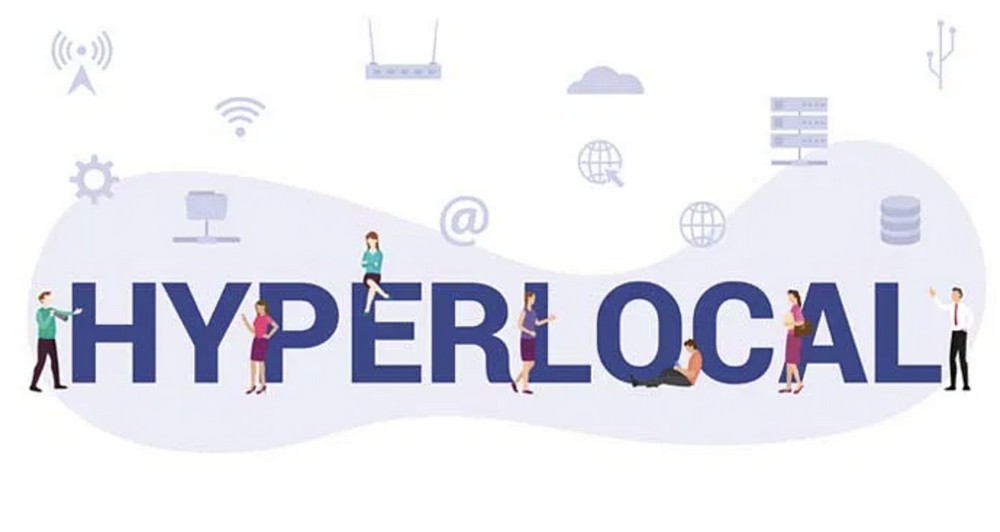Real Estate Developer Stephen Bittel Hyperlocal Economies Advice, Tips, Best Practice
Real Estate Developer Stephen Bittel On How Hyperlocal Economies
4 August 2020
Real Estate Developer Stephen Bittel On How Hyperlocal Economies
Will Dictate Post-Pandemic Business Success
As the Founder and CEO of Southern Florida’s Terranova Corporation, a leading multi-service commercial real estate development firm, Stephen Bittel has witnessed the impact that hyperlocal economies have on particular regions. For forty years, Bittel’s constant evolution, modernization, and revitalization of commercial real estate has directly manifested change within communities.
Championing the cycle of prosperity that is born from increased local commercial activity, Bittel has long been a proponent for modernizing the rise of the “live-work-play” downtown environment, creating diverse and successful communities, even in the age of online shopping. Now, as his native South Florida, and the country at large, recovers from the devastating effects of the COVID-19 pandemic, Stephen Bittel looks to hyperlocal economies, local trends and community cultures, and the reinvestment in robust downtown areas to re-launch the “new normal”.
Local Business’ Pre-Pandemic Evolution
Long before the words “social distancing” became a household phrase, and mode of daily operations, commercial businesses began dealing with other issues that ultimately led to the modernization of hyperlocal shopping districts. According to Stephen Bittel, the rise of online shopping culture necessitated the evolution of traditional commerce. As businesses began to see soaring numbers of online shoppers, many traditional brick-and-mortar storefronts began to shudder. To combat the potential death of traditional commerce, experts like Bittel listened to emerging consumer trends, considered changes in peoples’ lifestyles, and created modern experiences to draw in crowds seeking a new, immersive, and comprehensive shopping “experience”.
Controlling over $1 billion in commercial real estate assets, Bittel and Terranova Corporation led the charge to modernize southern Florida’s premier shopping destinations, creating a comprehensive experience that saw flocks of local residents exploring hyperlocal destinations for their retail, hospitality, and recreational needs. Stephen Bittel’s Terranova Corporation erected functional outdoor-based experiences that drew in local and national tenants, creating a one-stop-shop for individuals to purchase essentials, treat themselves to al fresco lunch, purchase a coveted handbag, and see a movie after a day of perusing each retail area’s particular offerings.
As local governments and community entities began to see the growth of urban downtown areas as a direct result of this rebirth of the hyperlocal commercial “experience”, community organizations began to pump funds into revitalization programs, streetscape projects, and the creation of public infrastructure to welcome continued growth. One example of these extensive projects is the famed $21 million Miracle Mile streetscape. A partnership between the city and property owners, this project cemented Coral Gables as a “destination”, helped to bring back local commerce, created countless local jobs, and generated a rise in local spending power.
While the Coronavirus pandemic has certainly put a stop to the rise of these “live-work-play” communities, Bittel believes that they will be a key factor for revitalizing communities that have shuddered in the wake of the pandemic.
Hyperlocal Post-Pandemic Resurgence
When considering how the post-Coronavirus economy will begin to blossom, Bittel swiftly points to the resurgence of the hyperlocal economy, sparked by the reactivation of safely altered local attractions, experiences, and local businesses. In the face of uncertainty, and possible closures of business activity in the future, post-pandemic success will be sparked by the resurgence of activity on the hyperlocal level.
Before the pandemic, southern Florida’s retail sectors were already pivoting to an inclusive model that married traditional shopping with modern lifestyle experiences, tech-based conveniences, and public infrastructure. Bittel points out the various ways that these modern evolutions will aid the hyperlocal business economy in the post-Coronavirus world.
With many coffee shops, restaurants, and markets offering curbside pick-up, online ordering, and other tech-based conveniences before the onset of social distancing guidelines, these previously implemented techniques will offer safe alternatives during the reopening phases for many local businesses. With countless individuals longing for their daily pre-work morning coffee rituals or Friday lunches at their favorite restaurants, these small indulgences can create lasting effects for the small businesses that rely on loyal, local, and repeat customers to keep their businesses running.
By implementing tech-based ordering capabilities, contactless delivery options, and appropriate outdoor seating arrangements that allow for maintained social distancing, these food and beverage establishments can welcome back eager patrons safely, a beacon for the “new normal”. Bittel points out that patronage of these locations will spearhead the cycle of commerce, where increased local business will drive the need for employees, who are most likely area residents. Job stability for residents will then translate to increased local spending, perpetuating the cycle of hyperlocal wealth, growth, and stability.
During the various stages of shutdown and quarantine, many local businesses also pivoted to an online sales model, offering local pick-up and delivery options. For many artisan boutiques, craftsman shops, and specialty stores that relied heavily on foot traffic for regular sales, the “buy online, pick up in-store” model served as an effective compromise to keep operations moving forward during unprecedented times. As storefronts begin to reopen, Bittel urges small businesses to retain the online sales model, offering nervous consumers varying options to safely shop wares on their own terms.
Harnessing the power of social media, many local businesses are showcasing their items to consumers directly via social media platforms, leveraging sales without the need for extensive computing know-how, site build-outs, or other costly investments. With eager consumers ready to take a masked walk to their favorite urban garden centers, mom and pop shops, and artisanal boulangeries to pick up purchases, the “buy online, pick up in-store” model will undoubtedly spur local spending in many communities.
Preparing For Local Tourism
While many may consider areas like Miami Beach to be tourist-heavy, and thus, reliant on tourism-based commerce, there is a vast hyperlocal economy driven by residents that exist in such areas. Miami’s Lincoln Road Business Improvement District’s findings suggest that roughly 40% of all pedestrian traffic consists of locals, creating a strong local commerce atmosphere. As countless individuals shift summer vacation plans from national trips that require air travel, to smaller road trips, areas like Miami Beach remain popular road trip destinations.
Bittel, whose Terranova Corporation owns and operates multiple Lincoln Road District commercial retail properties, cites that this increase in somewhat local traffic will also continue to support the area’s local businesses, need for employment, and commercial activity. Heavily based on outdoor experiences, Lincoln Road’s shopping district is the perfect immersive shopping experience that adapts to the public’s desire to remain outdoors, engage in appropriately socially distanced activity, and have a safe place to resume previous past-times.
While national operations, international businesses, and various vocational disciplines will certainly play a role in the post-pandemic future, the beginning of revitalization and success starts with hyperlocal economies, small businesses, investment in local areas, and continued interest in resident successes. Stephen Bittel, who has witnessed the evolution and modernization of southern Florida’s shopping districts through acclaimed Terranova Corporation, counts on the continuation of these innovative experiences to strengthen local spending power, create a need for stable employment, and bolster ongoing growth within the “new normal.” As eager consumers venture out to safely grab their favorite latte at the corner coffee shop, these small actions create a trickle-down effect that will ultimately spark rebirth within local destinations, one cup at a time.
Follow Stephen Bittel on ThriveGlobal and Medium.
Comments on the Going to School for Architecture advice article welcome
Glasgow Architecture
Historic Glasgow : best Glasgow architecture of the past
Comments / photos for the Going to School for Architecture Tips page welcome


